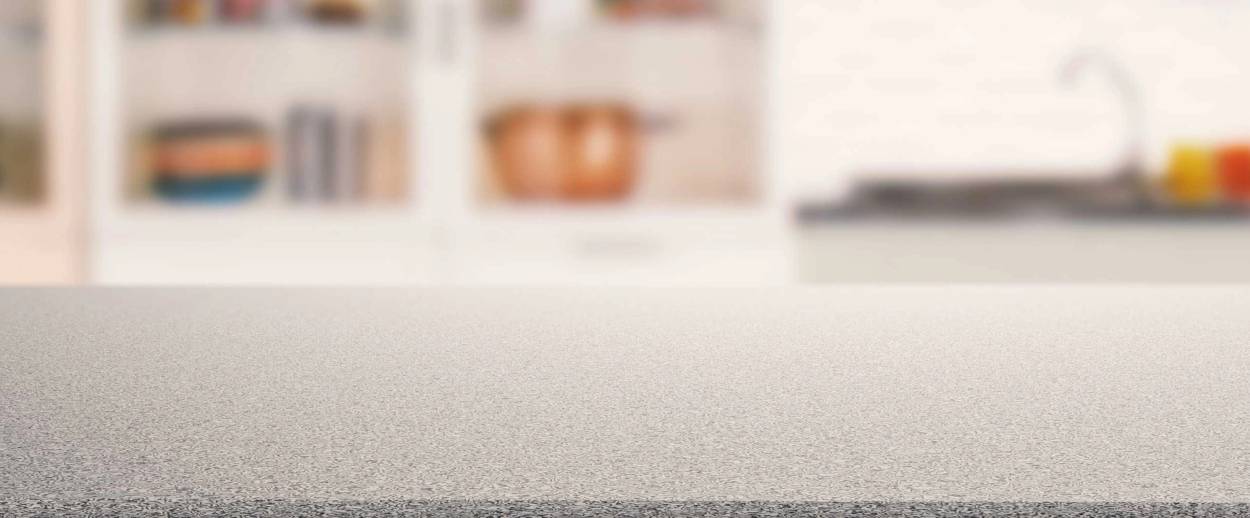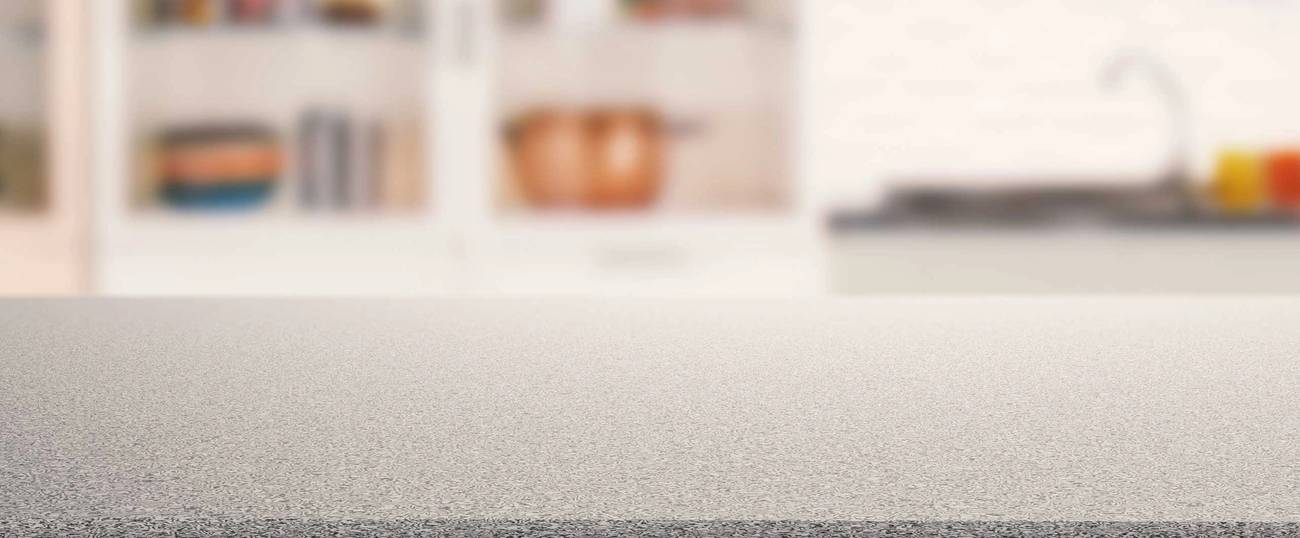The Festival of Cleaning
Whether you’re a hoarder or a neat freak, Passover gives families a chance to get rid of the mess—together




Passover is known as a holiday of liberation, salvation, even constipation, but to me, it was always a holiday of sanitation.
I grew up in a family of compulsive hoarders. My mom was born in 1945 in Kirgizia, on my grandparents’ postwar journey from a Siberian work camp back to Poland, a refugee before she ever knew what home was. Years later, in Montreal, both Bubbe and Mom stuffed their homes with bargain skirts, tuna cans, Russian whole-wheat loaves, obsolete fax machines—a disorganized morass that grew over the decades. Report cards were lost forever in the maelstrom of my mother’s old newspapers. Mom may have collected Dollar Store clocks, but our ultra-bohemian household was not regimented, everything running late, all of us eating meals at our own times and places.
Most of the time as a child, I felt unseen in the chaos, anxious, blocked from Mom by her piles, physically and emotionally; if I had a nightmare, there was no room to crawl into her bed. I received gifts I didn’t want, had to stuff reams of fake Howard the Duck T-shirts into my cupboards lined with mom’s clothes. I was ashamed of the junk, the depression. The growing piles of yellow bargain shampoo glared like neon signs of dysfunction.
Passover was a welcome respite from this chaotic domestic existence. My family wasn’t particularly religious, but weeks before the holiday, my parents began to stock up on supplies: kosher-for-Passover toothpaste, gum, salsa. For once, this stockpiling didn’t bother me, because I knew each item would have its place, laid out neatly on paper-towel-lined, newly washed Passover cupboard shelves.
The night before Passover came the domestic deep cleanse. Mom directed, Dad schlepped, my brother and I unpacked and organized. Trash bag after trash bag of Pesach dishes emerged from the cellar—treasures, a reminder that there was, hidden in a pocket of our basement, a stash of normalcy. Hope. Out came barely used mugs, a salt shaker, and a single set of glass plates (for milk and meat), shiny, transparent, light, and airy. Our kitchen was transformed. The counters—normally covered with cereal boxes, Danish rings, a reservoir of Sweet’N Low packets—were cleared so the white Formica tops sparkled like sand. The dishwasher rumbled with confidence, able to hold its load.
Then, the Seder. It was the opposite of the usual disorder—Seder means order—beginning with a chronologically determined to-do-list, and ending with a repetitive chant about goats. Ten plagues, four glasses, two hand washings, one ton of leftover gefilte fish. (I used to joke that Passover was a holiday of OCD until a psychologist revealed that the extremely rigorous demands of the holiday—the rules about yeast-based cosmetics and crumb classification—can genuinely worsen symptoms. There’s even a form of OCD around a fear of moral imperfection called “scrupulosity.”)
To the background harmony of vacuum cleaners that exfoliated the carpets of their crumbs, and the Mr. Clean lemon-lime perfume of my fantasies, I set the Seder table according to diagrams. I’d never been taught about place settings or silverware; the haggadah was my finishing school. In my house of complicated boundaries, hard rules were my emotional salvation, suggesting that someone was looking out for us. I did as instructed, adoring how the food on the Seder plate was labeled, divided by type, with small portions, neat circles like a solar system, a warp zone to a different existence. I added my own flourishes in the geometric parsley stack, the perfect positioning of the white egg. Smooth, white, life. Every sense was considered—the cinnamon nose, smooth shank bone, matzo crunch—mingling with the ma lecha hayam falsettos and the new spring sun that lingered a little bit longer in the sky, a symphony of order. A vacation, in my own home.
But then, after eight days of aesthetic nuance, the holiday would end, and we were back to the same old; and with all the unused Passover items, the mounds grew even bigger than they’d been before, the domestic crash diet backfiring.
***
I eventually fled home for college in the United States, beginning my journey toward the opposite. If my parents’ home was a hot Yiddish mess, I would become a cool militant minimalist.
At first, I returned to Montreal for the Seders, hoping that my near-empty dorm room meant my old bedroom had magically also morphed. But soon after, Bubbe died, and Mom’s hoarding amplified. I was devastated to find that the sacred Passover dishes had metastasized, the set now containing juicers and spice racks. The next year, I skipped home and Hillel for a tour de Spain with an Anglican boyfriend, ogling Gaudí rather than humming Chad Gadya. Soon after, I moved to sophisticated London to work in pristine art galleries. (As I’ve said before, “curator” was the least Yiddish word I knew, and I wanted in.) I hosted the odd Seder in the lounge of a flat I shared with three British hard-house DJs: My non-Jewish guests knew about the meal from their years studying the Last Supper. I eventually married another child of a hoarder, moved to New York, and together, we decorated a spotless apartment with white walls, carpets, and sofas, and little else.
That’s when, upon the arrival of spring, I began to wonder how to clean for Passover when there was no mess? I didn’t want to be extreme, boiling chametz off doorknobs and Swiffering ceilings, but to turn a meaningful reaction into a meaningful action. So much Jewish ritual takes place in the home, a mini-temple. The bulk of Pesach practice happens not in the synagogue, but the dining room. Did our cleansing rituals have other functions? Were we burning more than just our breadcrumbs?
Jewish scholars referred to “the leaven” as impure and timeless, arguing that it needed to be occasionally stopped and purged. A Chabad website suggested that examining the corners of your house mirrored looking through internal corners. By doing the rote, habitual work of tidying, we were free to focus inward (a trendy progressive preschool philosophy, too). Bread symbolizes our haughtiness; matzo, our humbleness. As we clean briefcases and window blinds, go through every drawer and crevice, hiding nothing from guests nor from ourselves, we must reflect on our own arrogance with the aim of changing it. Another Hasidic blog explained that the most difficult sites to clean are the storage rooms we never use. It’s important not to let areas of our minds gather dust; mental inactivity leads to anxiety, depression, and sin.
Then there were non-Jewish takes—if not on Passover specifically, then on the value of cleaning. Marie Kondo’s decluttering bible The Life-Changing Magic of Tidying Up advocates that we jettison excess objects. Her approach—meticulously examining every single domestic object, investigating each closet corner, a purge to take place quickly in just a few days—reminded me uncannily of the chametz search. Kondo’s reasoning: Keep only what you love; your environment should be filled with things of beauty and worth. Environmental psychologists agreed that it was important for us to have identity-marking objects clearly visible around us for a coherent self-concept, not to mention simplifying our surrounds to reduce stress. Even my yoga teacher had spent a whole class droning on about decluttering the soul through stretching the hamstrings. I took his advice to be what all these others seemed to be offering: We needed to rid blocks and tensions to get to a truer, leaner version of ourselves. Eliminating excess reveals who we are, now.
***
Everything changed with my first positive pregnancy test. My home became a battleground of toys and vegetable mash. To cope, I cleaned for an hour a night, essentially searching for chametz every day.
I downplayed Passover in the general mayhem of those baby-making years, but once my two daughters were a bit older, and I finally felt like “me” again, I wanted to do Pesach like we did in the old days.
But how? Despite the changes children brought, our apartment was still largely uncluttered, tidy, and arranged so that I knew where everything resided. Two kids in, and our sofas were still white(ish). Sure, defined areas of chaos reigned: My daughters’ room contained mounds of plush toys strewn with glitter, beads, and microscopic Legos as well as pony-based works-in-progress scenes. Our storage area was bloated with carseats, and my “home office” (principally a chair in the corner of a closet) looked like a Post-It note warzone. Perhaps because of these mini-messes, I transferred my attention to my all-white kitchen, which had become my prized minimalist canvas. My low-carb shelves were spick and span. My fridge contained only enough food for a few days. Passover made little difference—I banished bread and babka, but the domestic landscape went pretty much unaltered. I placed our specially marked Passover food on the counter, in a corner lined with paper towels (as my parents had done), so if anything, there was more clutter rather than less as the holiday approached.
As I unpacked my matzo-based groceries a few weeks before Passover, I brushed my hand along my crumb-free counter-top, reflecting on the holiday cleaning I wasn’t doing. Cleaning had been my coping mechanism, my freedom, but at times my oppressor. My excessive neatness could block me from intimacies; when as a new mom, I scrubbed the floors while my husband rocked our baby to sleep, or scoured the highchair instead of letting my daughter feed me, leaving her hanging with a spoon in her outstretched arm.
Zelda, now a preschooler, ran in, as if reading my thoughts. “Mommy, can I help you put the food away?”
That’s when it hit: Of course, I loved the clean house of Pesach, but more than that, I loved the cleaning of the house, the fact that my family had prepared ensemble. The rules of Passover tidying were bigger than us and united us in the same room. We ordered and arranged without question, with verve and house-pride, in concert. As a family, we partook in an activity that was unusual, and special. Nine months of pregnancy, three foremothers, two tablets. The one meal of the year my family ate at the same time—in the house that we all cleaned, together.
“Sure,” I told her, and watched as she confidently grabbed a box of yeast-free noodles and made for the cupboard, only to topple over a bag of cheesy Goldfish. Orange crumbs sprinkled across the pristine shelf. I was about to lunge for a Wet Wipe but then halted. In a few weeks’ time, we would have something to clean, hand in hand.
Judy Batalion is the author of White Walls: A Memoir About Motherhood, Daughterhood, and the Mess in Between. Her forthcoming book is about Jewish women who fought in the resistance against the Nazis.